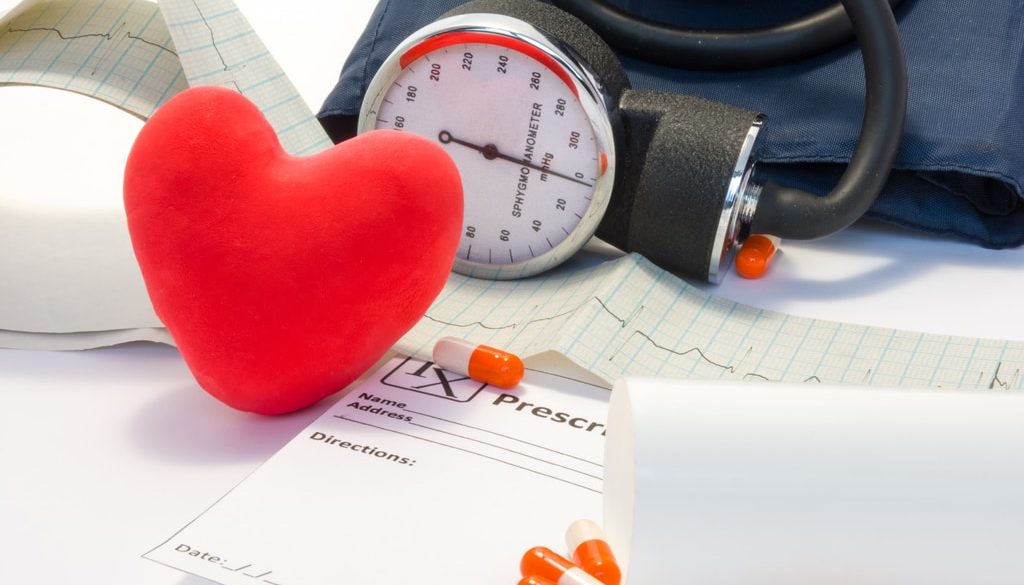The Most Common Medications for Heart Disease: What You Need to Know
Heart disease is the number one killer of Americans.
Every year, 1 in 4 adults die from the illness.
If you have heart disease, early intervention is vital to help you stay healthy and avoid a heart attack.
The good news is that heart disease can be treated effectively through medication and lifestyle changes. This is why we want to review the most common heart disease medications that are prescribed for certain heart conditions.
But before we take a look at the medications we use to treat this illness, let’s examine what heart disease is, who is at risk, and why heart disease in women looks different from heart problems in men.
What Are the Signs of Heart Disease?
Heart disease is a general term that can include lots of different conditions. This includes problems with your heart rhythm, blood vessels, heart muscle and even genetic defects (called congenital heart disease).
The symptoms will depend upon which kind of underlying illness you have. However, in general, if you’re experiencing any of these symptoms, you should schedule an appointment with one of our cardiologists:
- “Fluttering” feeling in your chest
- Racing or pounding heartbeat
- Shortness of breath
- Dizziness or being lightheaded
- Fainting
- Swollen legs, feet or ankles
If heart disease isn’t treated in a timely manner, you’re at greater risk for having a heart attack.
While chest pain is still the main symptom of a heart attack, be aware that not all people experience it in the same way. The pain may go away or return. For some, it may feel like pressure, squeezing or fullness.
Other signs of a heart attack include pain in areas such as the neck, stomach, jaw or arm. Shortness of breath, nausea or feeling lightheaded are also lesser-known heart attack symptoms.
What Are the Signs of Heart Disease in Women?
When a woman has a heart attack, she may show different signs than men. While women may still experience the main symptoms of chest pain, they are also more likely to experience symptoms such as:
- Nausea/vomiting
- Jaw pain
- Shortness of breath
- Back pain
If you are experiencing chest pain or any of the mentioned symptoms of a heart attack, call 9-1-1 and get immediate medical attention.
What Is a Normal Heart Rate?
This may vary depending upon your level of athletic fitness. However, the normal resting heart rate for adults is between 60 to 100 beats per minute. If you are a well-trained athlete, you might have a lower heart rate because a lower resting heart rate usually implies your heart is operating more efficiently.
What Medications Are Used to Treat Heart Disease?
There are different types of medications to help treat heart disease, and patients may need to take more than one. Our healthcare team will work closely with you to determine what the best course of treatment for you is.
We’ll look at some of the common classes of medications used to treat heart disease and how they work
ACE Inhibitors
These work by relaxing your veins and arteries. This lowers your blood pressure and helps prevent the narrowing of the blood vessels. This means your heart doesn’t have to work as hard to pump blood.
Some of the most common ACE inhibitors are:
- Enalapril (Vasotec)
- Fosinopril (Monopril)
- Captopril (Capoten)
- Lisinopril (Prinivil, Zestril)
- Ramipril (Altace)
- Trandolapril (Mavik)
- Perindopril (Aceon)
- Quinapril (Accupril)
Beta Blockers
These may also be called beta-adrenergic blocking agents. They work by causing your heart to beat more slowly. This means it does not exert as much force on your veins and arteries. Common ones include:
- Carvedilol (Coreg)
- Carvedilol CR (Coreg CR)
- Bisoprolol (Zebeta)
- Metoprolol succinate (Toprol XL)
Angiotensin II Receptor Blockers (sometimes called ARBs)
These also work by relaxing your veins and arteries. Your doctor may prescribe one of these common brands:
- Losartan (Cozaar)
- Valsartan (Diovan)
- Candesartan (Atacand)
“Water Pills” or Diuretics
These pills help rid your kidneys of unneeded salt and water. As a result, this helps reduce blood pressure and makes it easier for your heart to pump. These include:
- Amiloride (Midamor)
- Chlorthalidone (Hygroton)
- Hydrochlorothiazide or HCTZ (Esidrix, Hydrodiuril)
- Indapamide (Lozol)
- Chlorothiazide (Diuril)
- Metolazone (Zaroxolyn)
- Triamterene (Dyrenium)
- Furosemide (Lasix)
- Bumetanide (Bumex)
- Torsemide (Demadex)
How to Prevent Heart Disease
If you take the right steps, heart disease can be prevented—and eating a heart-healthy diet is a large part of it.
Our experienced, dedicated cardiologists and other members of our health care team will work closely with you to minimize your risk of developing the serious complications that result from this disease.
Following are some ways to help prevent heart disease:
- Keep an eye on your blood pressure. High blood pressure places you at much higher risk for heart disease. Be sure to get it checked regularly.
- Monitor your cholesterol. High cholesterol can lead to clogged arteries. You’ll also want to keep an eye on your triglycerides, the amount of fat in the blood. If you have high cholesterol and high triglycerides, it dramatically raises your risk of coronary artery disease.
- Maintain a healthy lifestyle. This means exercising regularly, eating nutritious food, maintaining a healthy weight, not smoking, and limiting alcohol.
- Keep stress under control. Stress creates a “domino” effect in so many ways. Stress raises blood pressure, and can lead to “comfort eating” of unhealthy food. Stress may also lead some people to smoke or drink too much.
- If you have diabetes, be sure it is well controlled. If you don’t have diabetes, be sure to have your blood sugar monitored regularly as part of an annual checkup.
Keys to a Heart-Healthy Diet
A diet that is low in salt and full of fruits and vegetables is a good choice to help your heart. It’s also vital to select whole grains and low-fat proteins (such as fish) for your plate. Be sure to eliminate, or at least limit, unhealthy fats that can increase your risk for coronary artery disease.
The American Heart Association has some interesting information to help you establish a heart-healthy diet.
We’ll also be glad to answer any questions you may have.
Interested in learning more about heart disease?
Check out these facts and statistics from the Centers for Disease Control.
Advanced Cardiac Care When You Need It
Conway Medical Center’s highly trained and experienced team of board-certified cardiologists is conveniently located in the heart of Horry County. Our location, coupled with our state-of-the-art technology, puts us in the perfect position to help treat heart disease and help you in an emergency.
Learn more about our heart center for information on how to get a referral to our cardiologists.




